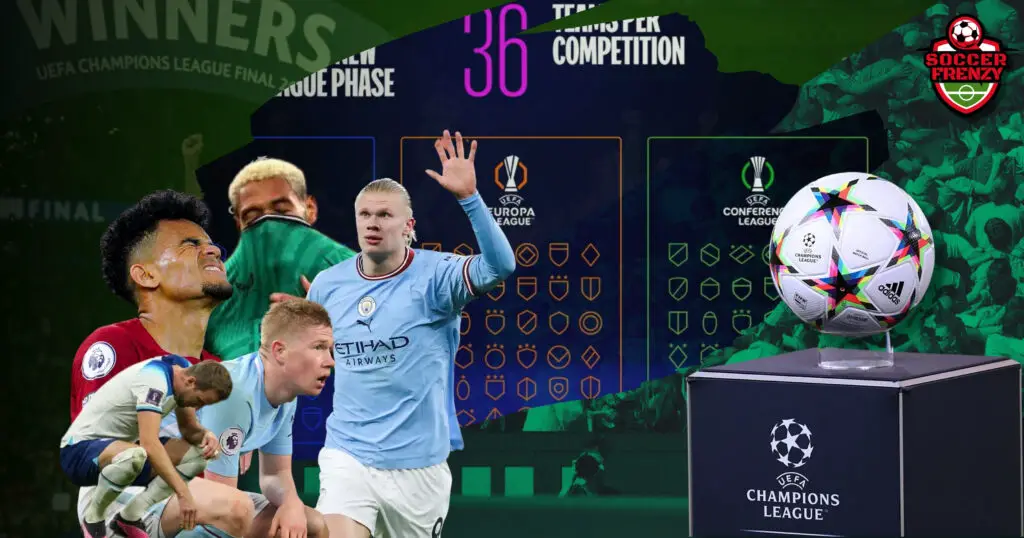New Champions League Part 2 (The Impact)
The new Champions League system brings with it a larger number of clubs and matches and, therefore, more money, which is why it is expected that there will be more excitement.
Despite the outcry of those who do not like change, and there are many such in the world of football, the league format in which every game is important and where the calculation maneuver is maximally narrowed should provide more entertainment to the spectators.
On the other hand, the players are the ones who will suffer the most as a result of the greater number of trips and played matches in an already rather crowded schedule.
The group stage will be played until the end of January, which, along with the playoffs, will leave very little room for rest for a certain number of teams.
What hasn’t changed are the favorites to win the competition. Despite a slightly weaker start to the season, Real Madrid will always be among the first favorites for the trophy, which they have won six times in the last 11 years.
Much is expected from Manchester City, which became the champion for the first time in history two seasons ago, and Barcelona and Bayern could go far. Clubs such as Arsenal, Inter, Liverpool, and PSG also belong to a slightly wider circle of favorites, while the other teams will hope for the best placement and games in which they could surprise better opponents.
Under the pretext of a more dynamic and equal competition, a greater number of attractive matches with significant results, and more frequent meetings of the best European teams, UEFA fundamentally changed the format of all European competitions, including the elite – the Champions League.
This change has been felt for a long time.
Ever since the dissatisfaction of the biggest European clubs became evident – which is best evidenced by the failed “coup” of the 12 richest clubs in Europe in the spring of 2021 when they wanted to organize the European Super League – it was clear that UEFA, as the organization of European football, would be forced to react.
The argument of the richest, and at the same time the biggest, clubs was simple: Why should we play with significantly weaker clubs and thereby lose money on television rights and ticket prices?
The calculation is simple: Money for TV rights and ticket prices can be considerably higher if there is a constant match between Real Madrid and Arsenal than when teams from the top five leagues play against an Eastern European club.
UEFA explained that the format was changed to satisfy the demands of the rich and allow the weaker to compete with the stronger.
The prize fund has increased by 25%, reaching 2.5 billion euros. For just participating in the competition, the clubs would collect 18.6 million euros, for each victory 2.1 million, while for each draw, the teams would receive 700,000 euros. Depending on which place they occupy in the final table, they will receive 275,000 euros multiplied by their position.
Although one way of looking at the situation with the new format is as a victory of football and ordinary people over the Super League and the richest, there are also real negative consequences.
The biggest clubs in Europe already have too many games during the season, and with the introduction of the new format, more games have been added to them, so the question is whether even the best players in the world can withstand such a pace of play. Perhaps the best example of a negative influence is the Spanish representative Dani Carvajal, who, after playing for Real Madrid last season and for Spain at the European Championship in Germany, had no rest for 12 months.
As before, the host of the final will be a predetermined city, and this season it is Munich. For the first time since 2012, the most important European football match will be played at the Allianz Arena, the home of the Bayern players.
Read More About Champions League.



